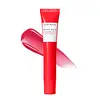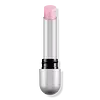What's inside
What's inside
 Key Ingredients
Key Ingredients

 Benefits
Benefits

 Concerns
Concerns

 Ingredients Side-by-side
Ingredients Side-by-side

Polybutene
Hydrogenated Polyisobutene
EmollientBis-Behenyl/Isostearyl/Phytosteryl Dimer Dilinoleyl Dimer Dilinoleate
EmollientDiisostearyl Malate
EmollientCaprylic/Capric Triglyceride
MaskingSynthetic Wax
AbrasiveHydrogenated Styrene/Isoprene Copolymer
Sucrose Tetrastearate Triacetate
EmollientTrihydroxystearin
Skin ConditioningEuphorbia Cerifera Wax
Tribehenin
EmollientSodium Hyaluronate
HumectantGlycerin
HumectantFragaria Ananassa Fruit Extract
Skin ConditioningTerminalia Ferdinandiana Fruit Extract
AntioxidantRubus Idaeus Leaf Extract
Skin ConditioningPrunus Salicina Fruit Extract
AntioxidantDextrin Palmitate
EmulsifyingPolyglyceryl-2 Diisostearate
EmulsifyingPolyglyceryl-2 Triisostearate
EmulsifyingEthylhexyl Palmitate
EmollientDehydroacetic Acid
PreservativeHydrogenated Styrene/Butadiene Copolymer
Sorbitan Sesquioleate
EmulsifyingWater
Skin ConditioningPentaerythrityl Tetra-Di-T-Butyl Hydroxyhydrocinnamate
AntioxidantStevia Rebaudiana Extract
Parfum
MaskingCI 45410
Cosmetic ColorantCI 15985
Cosmetic ColorantCI 77891
Cosmetic ColorantPolybutene, Hydrogenated Polyisobutene, Bis-Behenyl/Isostearyl/Phytosteryl Dimer Dilinoleyl Dimer Dilinoleate, Diisostearyl Malate, Caprylic/Capric Triglyceride, Synthetic Wax, Hydrogenated Styrene/Isoprene Copolymer, Sucrose Tetrastearate Triacetate, Trihydroxystearin, Euphorbia Cerifera Wax, Tribehenin, Sodium Hyaluronate, Glycerin, Fragaria Ananassa Fruit Extract, Terminalia Ferdinandiana Fruit Extract, Rubus Idaeus Leaf Extract, Prunus Salicina Fruit Extract, Dextrin Palmitate, Polyglyceryl-2 Diisostearate, Polyglyceryl-2 Triisostearate, Ethylhexyl Palmitate, Dehydroacetic Acid, Hydrogenated Styrene/Butadiene Copolymer, Sorbitan Sesquioleate, Water, Pentaerythrityl Tetra-Di-T-Butyl Hydroxyhydrocinnamate, Stevia Rebaudiana Extract, Parfum, CI 45410, CI 15985, CI 77891
Hydrogenated Polyisobutene
EmollientDiisostearyl Malate
EmollientPolybutene
Octyldodecanol
EmollientBis-Behenyl/Isostearyl/Phytosteryl Dimer Dilinoleyl Dimer Dilinoleate
EmollientTriisodecyl Trimellitate
EmollientSynthetic Wax
AbrasiveMicrocrystalline Wax
Emulsion StabilisingHydrogenated Styrene/Isoprene Copolymer
Dibutyl Lauroyl Glutamide
Skin ConditioningDibutyl Ethylhexanoyl Glutamide
Skin ConditioningCopernicia Cerifera Wax
Hydroxymethoxyphenyl Propylmethylmethoxybenzofuran
Skin ConditioningEthyl Vanillin
MaskingCalcium Sodium Borosilicate
Pentaerythrityl Tetra-Di-T-Butyl Hydroxyhydrocinnamate
AntioxidantSilica
AbrasiveCalcium Aluminum Borosilicate
Tocopherol
AntioxidantTin Oxide
AbrasiveDicalcium Phosphate
AbrasiveCI 77891
Cosmetic ColorantCI 45410
Cosmetic ColorantCI 42090
Cosmetic ColorantHydrogenated Polyisobutene, Diisostearyl Malate, Polybutene, Octyldodecanol, Bis-Behenyl/Isostearyl/Phytosteryl Dimer Dilinoleyl Dimer Dilinoleate, Triisodecyl Trimellitate, Synthetic Wax, Microcrystalline Wax, Hydrogenated Styrene/Isoprene Copolymer, Dibutyl Lauroyl Glutamide, Dibutyl Ethylhexanoyl Glutamide, Copernicia Cerifera Wax, Hydroxymethoxyphenyl Propylmethylmethoxybenzofuran, Ethyl Vanillin, Calcium Sodium Borosilicate, Pentaerythrityl Tetra-Di-T-Butyl Hydroxyhydrocinnamate, Silica, Calcium Aluminum Borosilicate, Tocopherol, Tin Oxide, Dicalcium Phosphate, CI 77891, CI 45410, CI 42090
 Reviews
Reviews

Ingredients Explained
These ingredients are found in both products.
Ingredients higher up in an ingredient list are typically present in a larger amount.
We don't have a description for Bis-Behenyl/Isostearyl/Phytosteryl Dimer Dilinoleyl Dimer Dilinoleate yet.
CI 45410 is a synthetic red-pigment and dye.
It often goes by both Red 28 or Red 27; manufacturers label both ingredients as CI 45410.
This dye is commonly found in makeup because it imparts a vivid color. Some types of this dye change color based on pH level and interaction with moisture:
Your skin has a natural pH of around 4.5 - 5.5.
According to the FDA, CI 45410 is not permitted for use in eye products.
Red 27 is a flourescein dye and commonly used as a fluorescent tracer in medicine.
Learn more about CI 45410Ci 77891 is a white pigment from Titanium dioxide. It is naturally found in minerals such as rutile and ilmenite.
It's main function is to add a white color to cosmetics. It can also be mixed with other colors to create different shades.
Ci 77891 is commonly found in sunscreens due to its ability to block UV rays.
Learn more about CI 77891Diisostearyl Malate is an emollient and most often used in lip products. It comes from isostearyl alcohol, a fatty acid, and malic acid, an AHA.
As an emollient, Diisostearyl Malate helps create a thin film on your skin to trap moisture in. This helps keep your skin soft and smooth.
Hydrogenated Polyisobutene is a synthetic polymer. Polymers are compounds with high molecular weight. Hydrogenated Polyisobutene is an emollient and texture enhancer.
In one study, Hydrogenated Polyisobutene showed better skin hydration levels than Caprylic/Capric Triglyceride. As an emollient, it helps keep your skin soft and hydrated by trapping moisture in.
Hydrogenated Polyisobutene is often used as a mineral oil replacement.
Learn more about Hydrogenated PolyisobuteneWe don't have a description for Hydrogenated Styrene/Isoprene Copolymer yet.
Pentaerythrityl Tetra-Di-T-Butyl Hydroxyhydrocinnamate (long name, huh?) is a synthetic antioxidant.
It is used to help stabilize other antioxidants or prevent the color from changing in a product.
As an antioxidant, it helps fight free-radical molecules. Free-radical molecules are capable of damaging our cells and other genetic material. Thus, antioxidants may reduce the signs of aging.
This ingredient is oil-soluble.
Learn more about Pentaerythrityl Tetra-Di-T-Butyl HydroxyhydrocinnamatePolybutene is used to help control the viscosity of a product. This just means it helps adjusts the texture.
It is a polymer and does not get absorbed into the skin due to its large size.
Studies found this ingredient did not irritate skin in concentrations below 15%.
Learn more about PolybuteneSynthetic Wax is created from fossil fuels such as natural gas. It is used to enhance texture, adjust pH, and as an occlusive.
It may also be used as an abrasive ingredient to exfoliate the skin.
Synthetic Wax may not be fungal acne safe.
Learn more about Synthetic Wax